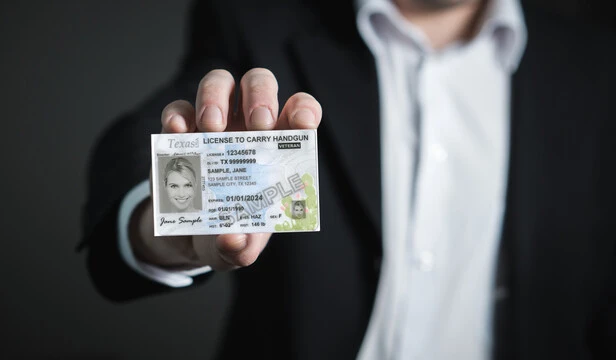Texas License to Carry Online | Easy, Fast & Convenient
Gun Show Guide
- Details
- Category: Concealed Carry in Texas Blog

As you walk into a gun show, you may be wondering what to expect. You're likely to see a bustling atmosphere with many people browsing through vendor booths and displays. But before we dive into the details of what you can find at a gun show, let's talk about one important aspect: the police gun inspection.
Texas State Fair Bans LTC
- Details
- Category: Concealed Carry in Texas Blog

The State Fair of Texas has recently implemented a significant change to its firearms policy, which has sparked considerable debate among Texas residents, particularly those who hold a License to Carry (LTC). The new policy prohibits fairgoers from bringing any firearms onto the fairgrounds, including those with a valid LTC, effectively banning both concealed carry and open carry of firearms. This decision marks a departure from previous years when LTC holders were allowed to carry concealed firearms while attending the fair.
Training Program: The Drill - Clint Smith
- Details
- Category: Practical Firearms Training

As firearms enthusiasts, we're always looking for ways to improve our skills and stay safe on the range. Clint Smith's "The Drill" is a comprehensive training program designed to help shooters develop the skills needed for self-defense scenarios.
Training Drills Collection - Rob Leatham
- Details
- Category: Practical Firearms Training

Rob Leatham's Training Drills Collection is a comprehensive set of exercises designed to help shooters improve their fundamental skills and enhance their overall performance. This collection provides a structured training program that helps shooters build a strong foundation in shooting skills, reinforcing muscle memory and improving accuracy and speed.
The Bill Drill - Bill Wilson
- Details
- Category: Practical Firearms Training

The Bill Drill is a fundamental shooting exercise that helps shooters develop their skills in drawing, grip, rapid-fire, recoil control, and sight alignment. This drill is designed to push shooters beyond their comfort zone, encouraging them to focus on accuracy rather than speed.
Key Takeaways
The primary purpose of the Bill Drill is to teach shooters how to maintain a good shooting position, acquire a proper grip, and execute controlled rapid fire. By emphasizing accuracy over speed, shooters can develop muscle memory and improve their overall shooting technique.
Three Target Test - Ken Hackathorn
- Details
- Category: Practical Firearms Training

The Three Target Test is a fundamental firearms evaluation developed by renowned instructor Ken Hackathorn. This test assesses a shooter's proficiency in marksmanship and their ability to apply the basics of shooting under different conditions.
Page 8 of 38






